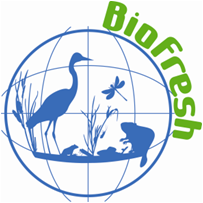Polyipnus polli was reported from
26 countries/islands
Table 1: the species is currently present in 26 of them (endemic, native, introduced);
Table 2: possible in 0 of them (stray, questionable);
Table 3: absent from 0 of them (extirpated, not established, misidentification, error).
Table 4: all reports listed together.
Distribution: Eastern Atlantic: Greenland to Namibia.
Table 1: Present in 26 countries/islands (endemic, native, introduced)
| Continent | Country | Occurrence | Main Ref. | |
|---|---|---|---|---|
| Africa | Angola | AGO | native |
4462 |
| Africa | Benin | BEN | native |
4462 |
| Africa | Cameroon | CMR | native |
4462 |
| Africa | Canary Is. | CNY | native |
4462 |
| Africa | Cape Verde | CPV | native |
4462 |
| Africa | Congo | COG | native |
4462 |
| Africa | Congo Dem Rp | COD | native |
4462 |
| Africa | Eq Guinea | GNQ | native |
4462 |
| Africa | Gabon | GAB | native |
4462 |
| Africa | Gambia | GMB | native |
4462 |
| Africa | Ghana | GHA | native |
4462 |
| North America | Greenland | GRL | native |
92146 |
| Africa | Guinea | GIN | native |
4462 |
| Africa | Guinea-Bissau | GNB | native |
4462 |
| Africa | Ivory coast | CIV | native |
4462 |
| Africa | Liberia | LBR | native |
4462 |
| Africa | Madeira Is. | MRA | native |
4462 |
| Africa | Mauritania | MRT | native |
4462 |
| Africa | Morocco | MAR | native |
4462 |
| Africa | Namibia | NAM | native |
27121 |
| Africa | Nigeria | NGA | native |
4462 |
| Africa | Sao Tome Princ. | STP | native |
4462 |
| Africa | Senegal | SEN | native |
4462 |
| Africa | Sierra Leone | SLE | native |
4462 |
| Africa | Togo | TGO | native |
4462 |
| Africa | West Sahara | ESH | native |
4462 |
Table 4: Reported from 26 countries/islands.
| Continent | Country | Occurrence | Main Ref. | |
|---|---|---|---|---|
| Africa | Angola | AGO | native |
4462 |
| Africa | Benin | BEN | native |
4462 |
| Africa | Cameroon | CMR | native |
4462 |
| Africa | Canary Is. | CNY | native |
4462 |
| Africa | Cape Verde | CPV | native |
4462 |
| Africa | Congo | COG | native |
4462 |
| Africa | Congo Dem Rp | COD | native |
4462 |
| Africa | Eq Guinea | GNQ | native |
4462 |
| Africa | Gabon | GAB | native |
4462 |
| Africa | Gambia | GMB | native |
4462 |
| Africa | Ghana | GHA | native |
4462 |
| North America | Greenland | GRL | native |
92146 |
| Africa | Guinea | GIN | native |
4462 |
| Africa | Guinea-Bissau | GNB | native |
4462 |
| Africa | Ivory coast | CIV | native |
4462 |
| Africa | Liberia | LBR | native |
4462 |
| Africa | Madeira Is. | MRA | native |
4462 |
| Africa | Mauritania | MRT | native |
4462 |
| Africa | Morocco | MAR | native |
4462 |
| Africa | Namibia | NAM | native |
27121 |
| Africa | Nigeria | NGA | native |
4462 |
| Africa | Sao Tome Princ. | STP | native |
4462 |
| Africa | Senegal | SEN | native |
4462 |
| Africa | Sierra Leone | SLE | native |
4462 |
| Africa | Togo | TGO | native |
4462 |
| Africa | West Sahara | ESH | native |
4462 |

 The map in this page was supported by BioFresh that has received funding from the
The map in this page was supported by BioFresh that has received funding from the
European Union's Seventh Programme for research, technological development and demonstration under grant agreement No 226874
cfm script by eagbayani, 10.05.99 ,
php script by rolavides, 04/02/08 ,
last modified by sortiz, 06.27.17